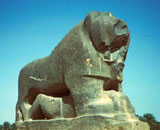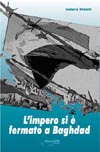WSWS, January 14, 2011
Continuing protests in Tunisia and Algeria threaten to spread to the whole of the Maghreb region and, beyond that, to engulf the Middle East, where the same conditions of poverty and insecurity exist.
Rising food prices are daily exacerbating social tensions caused by growing inequality and mass unemployment, especially among the young. The global financial crisis has set light to a tinderbox in North Africa and the Middle East.
This has provoked growing unease among the international ruling elite. Speaking in Doha, US Secretary of State Hillary Clinton told an audience of government officials and businessmen, "In too many places, in too many ways, the region’s foundations are sinking into the sand."
She warned that the populations of the region had "grown tired of corrupt institutions and a stagnant political order."
In an attempt to placate popular anger, in Tunisia, President Zein al-Abidine Ben Ali, a close US ally, went on television Thursday and promised to step down when his current term of office ends in 2014. He had previously sacked his interior minister, released some of those arrested in the recent protests and promised to create 300,000 new jobs. The Algerian government has reduced the price of oil and sugar by a total of 41 percent. This followed riots that were provoked by the removal of food subsidies.
Even where no demonstrations have taken place, Libya has reduced taxes on wheat-based products, rice, vegetable oil, sugar and infant milk. Morocco has introduced subsidies on milling wheat. Jordan has cut taxes on fuel and some foods.
Both the US and the European Union have applied pressure to Tunisia in the face of reports that the police were overwhelmed by demonstrators in the capital, Tunis. French ministers have refrained from publicly criticising Ben Ali’s violent repression of demonstrators that have left scores dead in many town and cities. Only after a French citizen was killed did Paris voice concerns about the use of "disproportionate" violence.
For France, with its large North African population, the protests in Tunisia and Algeria have immediate domestic implications. It is estimated that there are three million North Africans living in France. The government is clearly concerned that there may be a repeat of the social eruption which hit the suburbs of Paris and several other French cities in 2005. A state of emergency was declared and then interior minister, now President Nicholas Sarkozy prepared to introduce mass detentions of youth.
Perhaps the greatest fear among the political elite is that the social explosion in Tunisia and Algeria will ignite similar protests in Egypt—the giant of the region. Its population of 77 million is more than twice that of other North African countries and it is much poorer than either Tunisia or Algeria. Some 44 percent of the population live on less than $2 a day and free market economic measures have widened the gulf between rich and poor. Last year there were significant political demonstrations against the long-running state of emergency.
The concessions that have been made have little substance. Even as Ben Ali was promising to release prisoners, the leader of the Workers’ Communist Party of Tunisia, Hamma Hammami, was abducted from his home. No one should have any faith in the good intentions of corrupt regimes, which have consistently maintained their rule by police state methods. Instead, every effort should be made to spread the protests internationally. There is no reason to confine them within borders that were the arbitrary creation of colonialism.
The social explosion in Tunisia and Algeria and the murderous response of both governments demonstrates once again the inability of the national bourgeoisie to secure genuine liberation from imperialism, or to even begin to meet the democratic and social aspirations of the workers and peasants. Instead, Tunisia has remained closely tied to France, its former colonial master, and is run as a fiefdom of the "First Family". Algeria, which gained its independence through a bitter liberation struggle led by the Front de Libération Nationale (FLN), has ended up as a no less repressive and exploitative regime. President Abdelaziz Bouteflika may still invoke the memory of past struggles, but only so as to legitimise the bourgeoisie’s monopoly over the country’s oil and natural gas wealth while the people starve.
The trade unions have attempted to establish their control of the protests only in order to stifle them. The secretary-general of Union Generale Tunisienne du Travail (UGTT) Abdessalem Jerad met with Ben Ali after protestors had been gunned down in Tunis. Jerad campaigned for Ben Ali in the last presidential elections and insisted that this dictator, who barred other candidates from the election, would carry out a programme of beneficial reforms. "The reform movement led by President Zine El Abidine Ben Ali is a qualitative change in the process of building modern Tunisia," he said at the time.
Ben Ali would guarantee "an atmosphere of freedom and stability," he said. He welcomed the president’s rehabilitation of the trade unions and looked forward to working with the government.
Two years later, Ben Ali and his family have continued to loot the state and unemployment has mounted. The UGTT does not represent an alternative to the present regime. It is part of that regime.
The same can be said of parties that advance themselves as a left alternative. The Workers Communist Party of Tunisia has called for "the formation of an interim national government" that would "lay the foundations of the new and real Democratic Republic that guarantees people’s sovereignty, freedom, democracy and respect for human rights as well as equality, dignity, and the implementation of national and popular economic and social policies which provides employment and the foundations of a decent life for our sons and daughters and eliminate corruption, cronyism and regional discrimination."
But how is this "democratic agenda" to be achieved when police and troops are on the streets? And on what basis can this wish-list of demands be realised and genuine democracy and equality established without addressing the central issue of which class must rule?
The workers and youth who are fighting the police on the streets of Algeria and Tunisia are engaged in a life and death struggle with states that represent the interests of the local elite and the global financial aristocracy. That struggle cannot be brought to an end by shuffling the pack and creating some kind of government of national unity that still jumps to the tune of Washington, Paris and London. The only governments that can genuinely represent the interests of the mass of the population are workers’ governments, which must be formed through the bringing down of all the dictatorial regimes in the Maghreb.
To achieve that it is necessary to form organisations that are independent of the trade unions and existing pseudo-left parties. What are needed are committees of action that will unite workers, youth, the unemployed and the rural poor in a common struggle against the political elite and the financial aristocracy. These committees must reach out to French and other European workers, while extending the struggle that has begun in the Maghreb to the rest of North Africa and the Middle East.
The social explosion in Tunisia and Algeria is only one expression of class tensions that are building up worldwide in the wake of the biggest financial crisis that capitalism has ever known. The international working class has an immense social power. Only it can put an end to a capitalist system, which is incapable of providing for even the most basic needs of the majority of the world’s population.
Ann Talbot
|
















